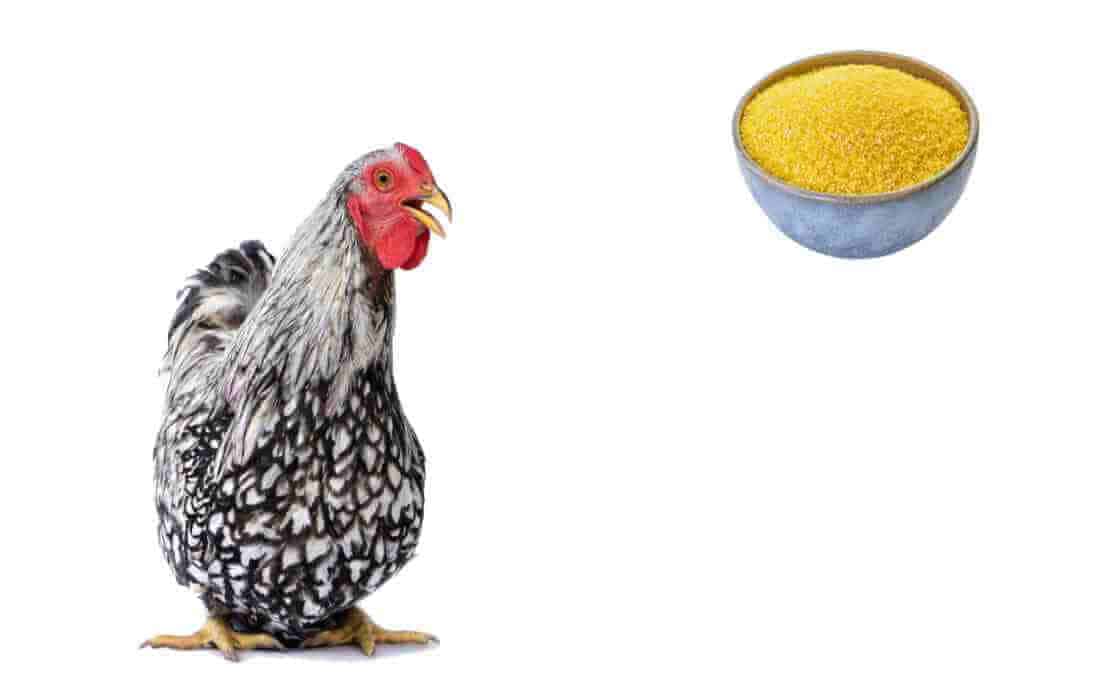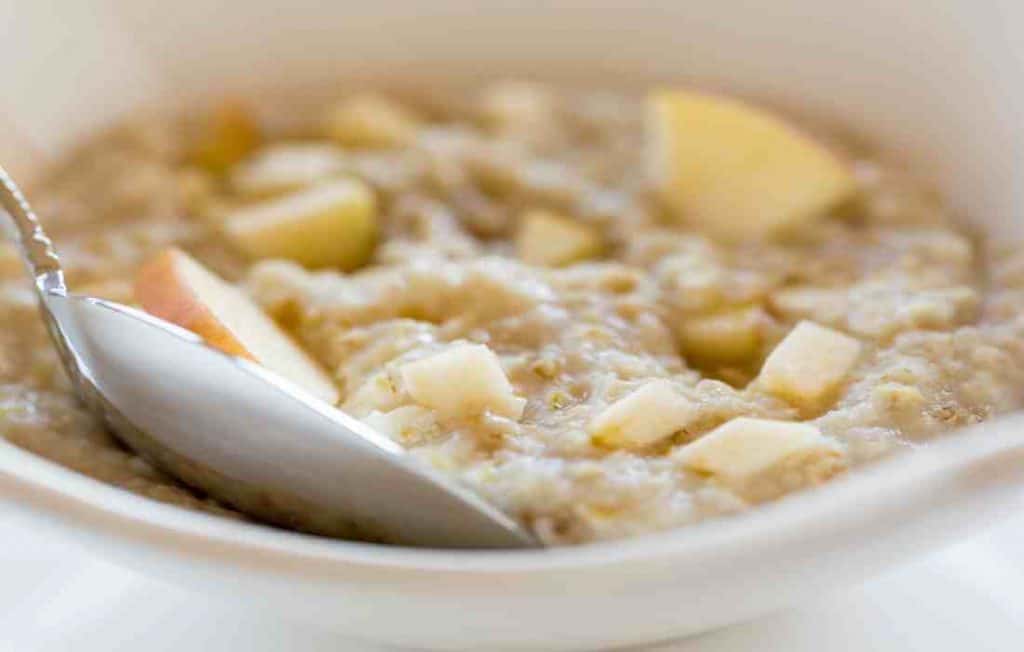Chickens require a wide variety of foods to maintain a healthy and balanced diet while also making good quality eggs. Some treats also provide extra nutrients for your chickens that aren’t in their daily feed, so keepers are always looking for new treats or meal ideas to keep their chickens happy and healthy. What about grits? Chickens can have corn, so should grits be a problem?
Can Chickens Eat Grits
Grits contain various antioxidants, minerals, vitamins, and are high in iron, which is essential for red blood cell production. You chickens can eat uncooked grits, because of the gizzard that helps them process food.
That being said, many people prefer feeding their feathered friends cooked grits, because of the myth floating around that uncooked grits and rice can explode in their stomachs.

We’ll take a closer look at what grits are, how to feed them to your feathered friends, and the benefits.
What Are Grits?
Grits are a popular Southern American dish made from crushed ground corn. There are several types available; quick and regular, instant, stone-ground, and hominy.
Grits are nothing more cornmeal, which is made from finely ground, dried corn. Chickens love eating corn, so they’ll likely gobble up a bowl of cooked grits.
Do Chickens Like Grits?
Chickens will eat almost anything, which means they will eat oatmeal, grits, yogurt, and other breakfast foods. If you’ve never given your chickens grits before, it may take time for them to eat them.
Chickens will eat pretty much anything, including rice, pasta, grits, oatmeal, popcorn, and anything else you give them. These omnivores will even eat meat if you give it to them.
Are Grits Healthy For Chickens
Grits are perfectly safe for your chickens to eat and even have many health benefits.
Grits are most commonly made with a type of corn called dent corn. Dent corn is softer than any other kind of corn and has a starchier kernel.
To make grits, the dent corn is ground, crushed, and then soaked in water to remove the outer hull. Removing the outer hull makes the corn much more digestible and allows the nutrients to be more readily absorbed by the body.
Stoneground corn contains more nutrients than corn ground with any other method. This is because stone-ground corn undergoes a lot less processing than other ground corn. But don’t worry, if you can’t get stone-ground grits, all types of corn still contain a variety of nutrients that are good for your chickens.
Health Benefits of Grits for Chickens
According to Healthline, grits contain powerful antioxidants, including 4-OH benzoic acid, syringic acid, caffeic acid, lutein, and zeaxanthin. These have all been linked to amazing health benefits, such as preventing degenerative eye disorders in humans. The science behind this is true for chickens, although there isn’t as much need for research.
Grits are also high in iron, B vitamins, and carbohydrates, providing short-term energy for your chickens. Here’s a table of the nutrients that are found in grits.
Grits Nutritional Information
One cup of white regular corn grits cooked with water contains:
| Nutrients | Quantity |
| Calories | 143 |
| Dietary Fiber | 0.7 grams |
| Folate | 79.9 mcg |
| Total Omega-3 Fatty Acids | 4.8 mg |
| Total Omega-6 Fatty Acids | 196 mg |
| Iron | 1.5 mg |
| Calcium | 7.3 mg |
| Potassium | 50.8 mg |
| Sodium | 540 mg |
| Selenium | 7.5 mcg |
| Fluoride | 136 mcg |
| Water | 207 grams |
| Phosporus | 26.6 mg |
| Magnesium | 12.1 mg |
Grits contain something called carotene, a red/orange plant pigment found in carrots that will improve poultry birds’ production and health.
Carotene also improves the quality of meat, gives your hen’s egg yolk a nice desirable color. If your hens are not laying eggs the way they used to, you may want to give them some as a snack or mix some in with their regular feed.
Don’t worry if your flock happens to get a hold of some raw grits; the swelling isn’t detrimental. It’s only enough to cause some slight discomfort in your chickens, and most won’t have any side effects at all.
How Can Chickens Safely Eat Uncooked Grits?
Chickens have a unique digestive system made of multiple parts that makes it easy for them to digest their food stages. It also allows chickens to digest uncooked rice and grits shortly after eating it.
There are many myths about chickens and birds being unable to eat uncooked grits because it will expand in the bird’s stomach expand, causing it to burst, resulting in death.
But birds have a different type of stomach than we do. When chickens eat, the food doesn’t have enough time to sit in the stomach to expand and cause problems.
When the chicken eats raw grits, the food moves into the crop, a storage area for excess food. It then passes through the proventriculus, the stomach, where it mixes with the digestive juices that break it down.
Any leftover particles will move through the gizzard, where it further ground, making them more digestible. At this point, there aren’t enough breakfast grits left to expand that would cause any gastrointestinal issues.
The issue with feeding chickens raw grits is they are so small that most will get lost in the ground before your chickens can eat them.
That said, if you don’t feel comfortable feeding your chickens uncooked grits, then, by all means, cook them.
Can Chickens Eat Cooked Grits?

Cooked grits are acceptable, and most chicken owners prefer feeding their flock cooked grits instead of uncooked ones, because they’ve heard that cooked grits are safer for birds.
Chickens will eat both cooked and uncooked grits. We feed our chickens cooked grits, because they seem to like it better than the uncooked variety. Plus, he fine texture makes it difficult to eat when thrown on the ground.
You should also only feed your chickens grits that have not been seasoned or have any extra additives that are unhealthy for your chickens. Never give your chickens grits that have been seasoned with sugars, maple syrup, butter and etc.
How Often Can Chickens Eat Grits
Corn is considered the easiest grain for chickens to digest and can be fed daily. That being said, it is also essential that your chicken’s diet consists of other things besides corn.
Grits can be fed often as long as you don’t ignore their other nutritional needs. Grits or corn fed alone as their primary diet does not contain all of the nutrients your chickens need to maintain a balanced and healthy diet.
Community Chickens mentions that corn for chickens is often combined with soybean meal to provide protein for this exact reason.
For a chicken to have a balanced diet, their feed needs to contain carbohydrates, fats, proteins, vitamins, and minerals, which can all be found in a chicken feed that includes a variety of grains and vegetables.
As long as all of their nutrition needs are being met there is no problem with your chickens consuming small amounts of grits often, even daily.
Can Baby Chickens Eat Grits?
Young chickens can eat cooked grits as long as they are fed a high-quality commercial starter feed. You can mix some of the cooked grits in with their regular feed as a treat.
Final Word
Chickens can eat grits, as it’s made from crushed corn, which is not toxic for chickens.
It’s crucial that you only feed you chicken cooked grits as uncooked grits can swell in your chicken’s stomach and cause some health problems.
Grits can be fed to your chickens on a daily basis as long as their other nutrient requirements are being fulfilled. Grits should not make up most of your flock’s diet in any way as this is not a healthy and balanced diet.
Grits contain many good things for your flock, such as B vitamins, iron, and many different types of antioxidants, promoting a healthy immune system and gut in your chickens.
So, if you have some extra grits in the house that you’re not too keen on eating, give them to your chickens!
Related Articles